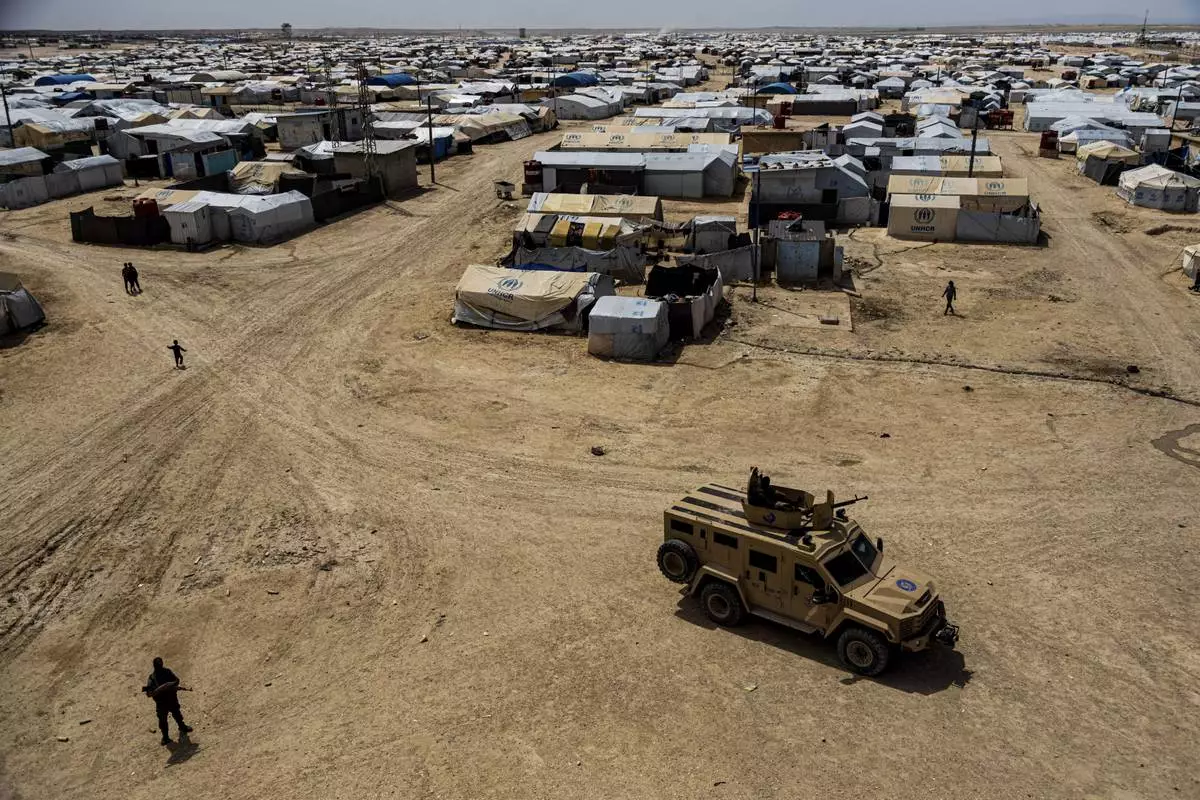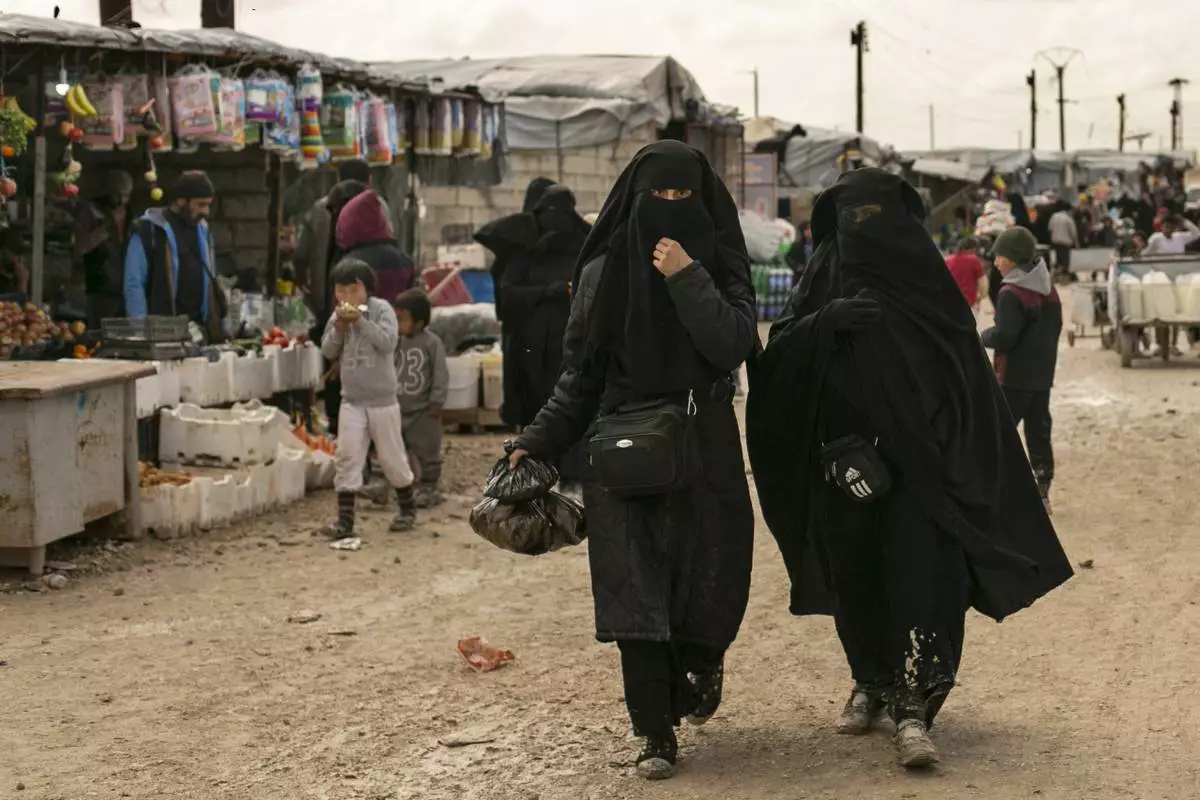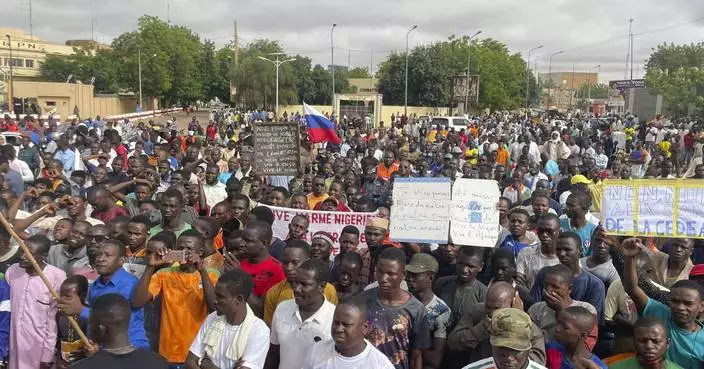The field manager of an Iowa hog farm testified that a woman with whom he was having an affair told him last year she was deathly afraid of her husband — a man now accused of using a corn rake to kill her.
Jerry Frasher testified Wednesday in the trial of Todd Mullis. Mullis is charged with first-degree murder in the slaying of Amy Mullis on Nov. 10 at the farm about 40 miles (64 kilometers) west of Dubuque.
A prosecutor has said Todd Mullis was irate over the affair and fearful that he'd lose their farm if she divorced him.
The Telegraph Herald reported that Frasher said he began a sexual relationship with Amy Mullis in late May or early June last year.
"I know she wasn't happy," Frasher testified. "She said she felt like a slave or a hostage around there. She said she was wanting (to leave Todd). One time, she said if he ever found out (about the affair,) she would disappear."
Todd Mullis confronted him in July 2018 after a phone bill showed more than 100 instances of Frasher and Amy texting, Frasher said.
"I said it was about other stuff, like showing pigs," he said.
Todd Mullis called Frasher's wife asking questions about the text messages, and their discussion appeared to satisfy him, Frasher said.
"Two days later, he called us both back and apologized," Frasher testified. "He asked us to quit texting, and we did."
Frasher said he told Amy Mullis: "We need to slow down."
During cross-examination Frasher said he continued to provide professional services to the Mullis farm until Amy Mullis' death. He said Todd Mullis never showed any animosity toward him.
Earlier Wednesday, the forensic pathologist who performed an autopsy on Amy Mullis' body testified that she was impaled by a corn rake "at least twice, possibly three times."
"The manner of death was homicide," Dr. Kelly Kruse said.
Information from: Telegraph Herald, http://www.thonline.com
BEIRUT (AP) — The United States has repatriated 11 of its citizens from sprawling camps in northeastern Syria that house tens of thousands of family members of suspected Islamic State militants, the U.S. State Department said Tuesday.
The repatriation was the largest Washington has carried out from the camps to date, U.S. Secretary of State Antony Blinken said in a statement. Five of the 11 citizens brought back were children, and one non-U.S. citizen child -- the 9-year-old sibling of one of the other children -- was also brought with them.
As part of the same operation, the U.S. facilitated the repatriation of 11 other camp residents, eight of them children, to Canada, the Netherlands and Finland, the statement said.
Although the pace of repatriations has picked up -- neighboring Iraq recently returned hundreds of its citizens -- many countries remain reluctant to bring back citizens from the al Hol and al Roj camps, which now hold about 30,000 people from more than 60 countries, most of them children.
The camps are run by local authorities affiliated with the U.S.-backed, Kurdish-led Syrian Democratic Forces. The SDF and its allies, including U.S.-led coalition forces, defeated the Islamic State group in Syria in 2019, ending its self-proclaimed Islamic “caliphate” that had ruled over a large swath of territory straddling Iraq and Syria.
Human rights groups have regularly reported on what they describe as inhumane living conditions and abuses in the camps and in detention centers where suspected IS members are housed.
“The only durable solution to the humanitarian and security crisis” in the facilities “is for countries to repatriate, rehabilitate, reintegrate, and where appropriate, ensure accountability for wrongdoing,” Blinken said in the statement.

FILE - Kurdish forces patrol al-Hol camp, which houses families of members of the Islamic State group in Hasakeh province, Syria, on April 19, 2023. The United States has repatriated 11 of its citizens from sprawling camps in northeastern Syria that house tens of thousands of family members of suspected Islamic State militants, the U.S. State Department said Tuesday May 7, 2024. (AP Photo/Baderkhan Ahmad, File)

FILE - Women shop in the marketplace at al-Hol camp, home to families of Islamic State fighters, in Hasakeh province, Syria, on March 31, 2019. The United States has repatriated 11 of its citizens from sprawling camps in northeastern Syria that house tens of thousands of family members of suspected Islamic State militants, the U.S. State Department said Tuesday May 7, 2024. (AP Photo/Maya Alleruzzo, File)











